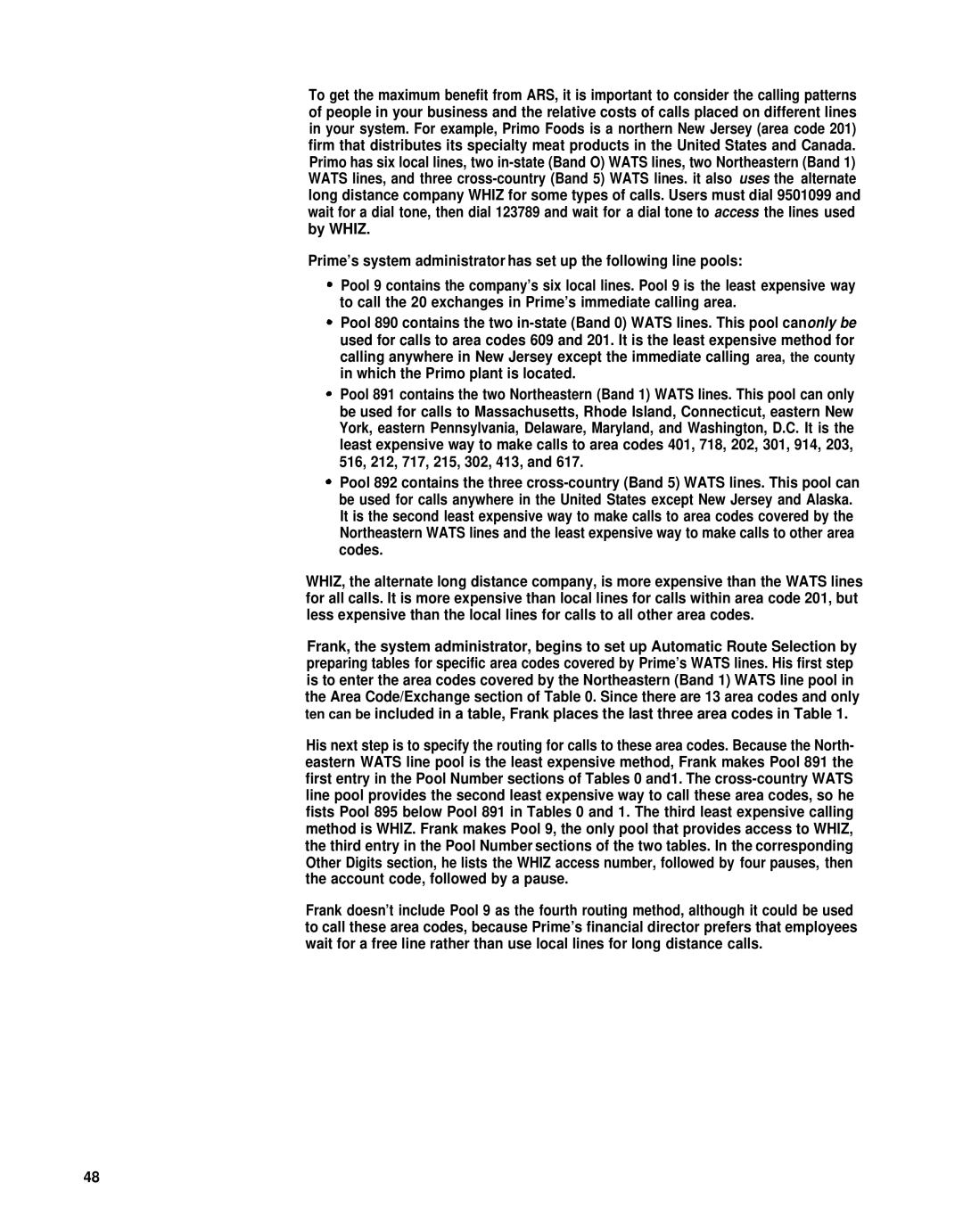To get the maximum benefit from ARS, it is important to consider the calling patterns of people in your business and the relative costs of calls placed on different lines in your system. For example, Primo Foods is a northern New Jersey (area code 201) firm that distributes its specialty meat products in the United States and Canada. Primo has six local lines, two
Prime’s system administrator has set up the following line pools:
Pool 9 contains the company’s six local lines. Pool 9 is the least expensive way to call the 20 exchanges in Prime’s immediate calling area.
Pool 890 contains the two
Pool 891 contains the two Northeastern (Band 1) WATS lines. This pool can only be used for calls to Massachusetts, Rhode Island, Connecticut, eastern New York, eastern Pennsylvania, Delaware, Maryland, and Washington, D.C. It is the least expensive way to make calls to area codes 401, 718, 202, 301, 914, 203, 516, 212, 717, 215, 302, 413, and 617.
Pool 892 contains the three
WHIZ, the alternate long distance company, is more expensive than the WATS lines for all calls. It is more expensive than local lines for calls within area code 201, but less expensive than the local lines for calls to all other area codes.
Frank, the system administrator, begins to set up Automatic Route Selection by preparing tables for specific area codes covered by Prime’s WATS lines. His first step is to enter the area codes covered by the Northeastern (Band 1) WATS line pool in the Area Code/Exchange section of Table 0. Since there are 13 area codes and only ten can be included in a table, Frank places the last three area codes in Table 1.
His next step is to specify the routing for calls to these area codes. Because the North- eastern WATS line pool is the least expensive method, Frank makes Pool 891 the first entry in the Pool Number sections of Tables 0 and1. The
Frank doesn’t include Pool 9 as the fourth routing method, although it could be used to call these area codes, because Prime’s financial director prefers that employees wait for a free line rather than use local lines for long distance calls.
48
